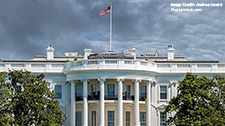Corruption and International Organizations: The United Nations and the World Bank
Per Larsson / Summarized by Stina Hartikainen
At a recent ISDP Forum on Transnational Crime the problem of corruption in international organizations was discussed by Per Larsson. He is a PhD Candidate at the Stockholm University Faculty of Law, writing his dissertation on the legal problems faced by international organizations in dealing with corruption. This summary was compiled by Stina Hartikainen.
Related Publications
-
Issues and Trends in U.S. Presidential Election 2024
The U.S. presidential election, like national elections in most democracies, is mostly fought and won on domestic issues that have a direct bearing on the day-to-day lives of the American […]
-
IN DEFENSE OF THE LIBERAL INTERNATIONAL ORDER
In recent years, the geopolitical fight for global economic, diplomatic, and institutional control has acutely intensified, accentuating the crisis in the existing post-World War II Liberal International Order (LIO), championed […]
-
ISDP Annual Report 2023
ISDP’s Annual Report for the year 2023. We look back on 2023, a year in which tensions and conflicts captured the strategic space in ISDP’s focus areas, making headlines around […]
-
The Quad and Submarine Cable Protection in the Indo-Pacific: Policy Recommendations
This policy brief analyzes the Quadrilateral Security Dialogue (Quad) initiative on submarine cables in the Indo-Pacific and offers a timely roadmap as to how best to protect them. It first […]
-
The Global South Scaled in Japan’s New Outreach
The “Global South” is no longer just a growing buzzword confined to academic publications but has found increasing resonance in strategic circles. Even as Russia’s invasion of Ukraine consolidated the […]




